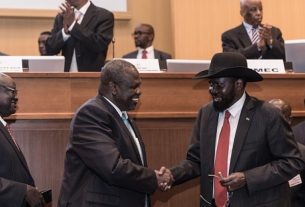Thailand’s National Human Rights Commission on June 10 boldly entered uncharted waters by accusing state officials of the enforced disappearance of nine exiled Thai activists in neighboring countries.
Under the military rule of Gen. Prayut Chan-ocha, who took power following a coup in May 2014, Thai authorities aggressively pursued exiled critics of the monarchy who had fled to Laos, Vietnam, and Cambodia. The Thai government at that time repeatedly demanded neighboring governments to hand over these exiles, who had been subject to surveillance and intimidation by agents of Thai authorities.
Itthipol Sukpaen and Wuthipong Kachathamakul were abducted in Laos in June 2016 and July 2017 respectively. In December 2018, three more exiles—Surachai Danwattananusorn, Kraidej Luelert, and Chatchan Buphawan—went missing in Laos. The mutilated bodies of Kraidej and Chatchan were later found floating in the Mekong River. In May 2019, Chucheep Chivasut, Siam Theerawut, and Kritsana Thapthai were forcibly disappeared after being arrested by Vietnamese authorities. And in June 2020, Wanchalearm Satsaksit was abducted in broad daylight in Cambodia.
None of these cases have been successfully resolved, so the families of the victims petitioned the National Human Rights Commission, alleging that Thai authorities had not properly investigated their disappearances.
This is the first time that the commission has investigated issues related to so-called transnational repression, which are efforts by governments to silence or deter dissent by committing human rights abuses against their own nationals or members of the country’s diaspora outside their territorial jurisdiction.
Human Rights Watch’s recent report, “‘We Thought We Were Safe’: Repression and Refoulement of Refugees in Thailand,” documented a pattern of transnational repression in which Thai authorities helped neighboring governments take unlawful actions against refugees and dissidents seeking shelter in Thailand. In exchange, Thai authorities were able to target critics of the Thai government living in Laos, Vietnam, and Cambodia as part of a “swap mart” of refugees and dissidents.
The National Human Rights Commission has urged the Thai government to fulfill its obligations under international human rights treaties and Thailand’s Act on Prevention and Suppression of Torture and Enforced Disappearance, which took effect in February 2023. Prime Minister Srettha Tavisin should heed this call and ensure his government fully and fairly prosecutes those who ordered and carried out these heinous crimes, regardless of their rank and status.



